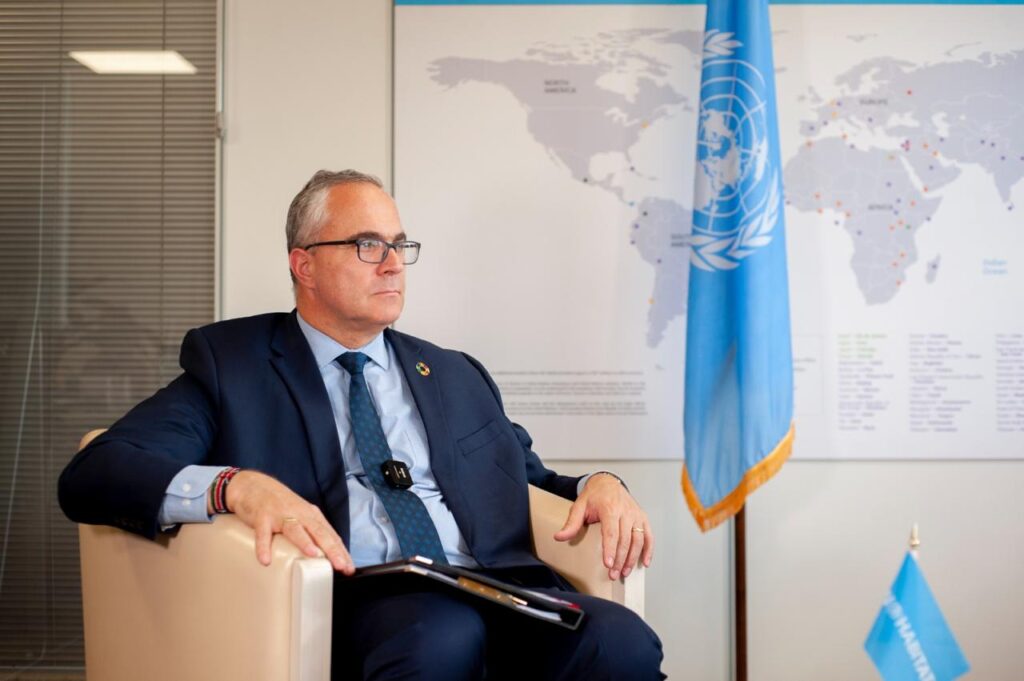28 April 2024, Nairobi. – One of the 17 sustainable development goals (SDGs) is to have sustainable cities that provide opportunities for all, including access to basic services, energy, housing and transport. Cities like Nairobi, must be on the move.
People are increasingly moving from rural areas to cities in search of better job opportunities, higher wages and improved career prospects. This is why SDG11, which is designed to make cities and human settlements, inclusive, safe, resilient and sustainable is so important.
Cities like Nairobi, should be on the move-adopt policies that drive structural transformation, boost growth, create jobs and obtain maximum benefits possible.
The planned United Nations Summit of the Future to be held this year should provide reflective moment for world leaders especially from Africa, on how the continent can re-engineer its policies to accommodate increasingly transforming urbanisation and challenges it brings.
Policy makers must take all the necessary measures to develop new plans to draw the full benefits of urbanisation. Urbanisation is ranked one of the significant global trends in the 21st century. Today, over 50 per cent of the world population live in cities, a figure expected to reach 75 per cent by 2050 – down from 10% in 1900.
The United Nations Human Settlements Programme (UN-Habitat) supports national programmes relating to human settlements, particularly in developing countries. Africa is urbanising at rate of four per cent annually, with large populations shifting from rural areas.
As the acting executive director of UN-Habitat, Michal Mlynár says our future is urban. However, the most common challenges in achieving a better urban future is largely unplanned and rapid urbanisation and inadequate infrastructure and basic services.
“We need to create a better urban future for current and future generations…we are experiencing rapid urbanization at a pace that is unprecedented and we are witnessing a massive demographic shift.” says Mlynár
According to the African Development Bank report Africa’s Urbanisation Dynamics 2022 urbanisation in Africa contributes to better economic outcomes and higher standards of living.
Indeed, urban areas are crucial for the national development of African countries. For instance, in Kenya, economic activities in urban areas account for 55% of the Gross Domestic product. It is projected that 80 per cent of future economic growth will be in the cities. Like other countries in Africa and elsewhere, Kenya’s development policies and plans should integrate the contribution of urban areas to ensure that they generate prosperity for all.
Noteworthy, urbanisation presents realities that require thoughtful management to fulfill expectations and provide better lives for all. Policymakers must do everything to ensure urbanization works for everyone. For examples government must develop comprehensive urban planning policies to ensure that rapid urban growth leads to employment creation and economic growth, and does not result into mass production of slums, informality and illegality.
We need to get urbanisation right to achieve the targets of the 2030 Sustainable Development Agenda and move towards a world where we end poverty, protect our planet from the climate crisis, and bring peace and prosperity to everyone.
Cities are on the frontlines of nearly every global challenge we currently face. But they also need to be at the center of our strategy to solve them.
New approaches are needed. We need people-centered innovative tools to solve urban challenges.
Data can help cities improve governance and make informed decisions on how to build and manage urban spaces and services.
The article was first published in the Sunday Nation, and it is based on Raphael Obonyo’s interview with Acting Executive Director of UN-Habitat, Michal Mlynar, on why urban planning is key to sustainable cities, and why urbanisation is critical to Sustainable Development Goals. And UN Summit of the Future




